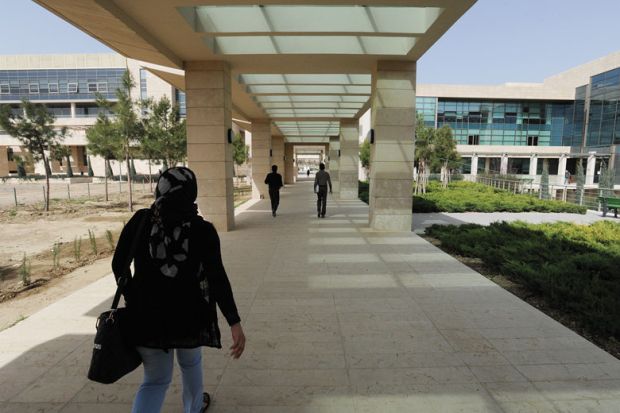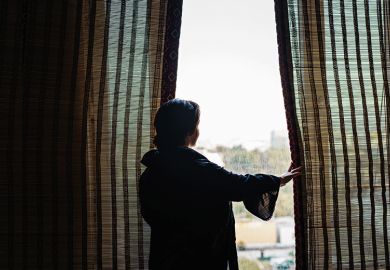Afghan students who were evacuated to an Iraqi university say they have been uprooted at the expense of other opportunities and are not getting the education they need to progress.
Roughly 110 students from the American University of Afghanistan (AUAF) currently study at the American University of Iraq, Sulaimani (AUIS), which has hosted them since Kabul fell to the Taliban in August 2021.
“The environment here is not optimal for us to learn or progress,” they wrote in an email sent earlier this month and seen by Times Higher Education.
The students – dozens of whom are copied on the message – complained that they were being “kept in the dark” over their immigration status and pressured into staying at the university despite what they felt were lacklustre opportunities. Many said they were grateful for the “roof over our heads” but expressed frustration at what they felt was a dead-end scenario.
They worried they were missing resettlement opportunities – with many wishing to continue their studies in the US. The students also complained of “threatening and unprofessional behaviour” from AUIS staff “over minor or unclear issues” such as dormitory cleanliness.
Students soon to graduate said they “have no choice” but to enrol in AUIS’ MBA programme “regardless of their educational background [or] professional goals”.
“It really worries me how long I’m going to stay here,” said one student, who asked to be anonymous. “My main concern is leaving this place…then I can be a help to my family.”
Another told THE: “I’m always in my own room. Being here, having no update on life, career, makes you hopeless – do they really care about me?”
Bruce Ferguson, president of AUIS, acknowledged that many students were “under tremendous pressure”, concerned about their families still in Afghanistan.
He defended his staff, who he said offered opposing accounts of student behaviour and said the move was a big change for students, many of whom were living outside their family homes for the first time. “There’s a lot of adjustment and give and take, so I would expect a lot of friction, a lot of worry and sensitivity on the part of the students,” he said.
Professor Ferguson said that the AUAF students’ stay in Iraq was never meant to be permanent and the MBA was a means of allowing them to remain in the country until other opportunities arise. “We would welcome, absolutely with open arms…other universities willing to take them in as undergraduates or graduates,” he said.
While he admitted that “there may have been a lack of complete communication” over visa issues, he underscored that his university was doing everything possible to facilitate the students taking the next step in their education, with five students already in receipt of offers to study in the US.
But he cautioned that “we want to make sure students don’t treat this as a transit lounge between Afghanistan and their next destination – they really have to make this year count academically. That was the whole point of bringing them to AUIS.”
Ian Bickford, president of AUAF, said students’ anxiety about their future was “understandable” and his university was tackling any ongoing issues. “We’re doing everything we can actively and daily to support them,” he said.
Register to continue
Why register?
- Registration is free and only takes a moment
- Once registered, you can read 3 articles a month
- Sign up for our newsletter
Subscribe
Or subscribe for unlimited access to:
- Unlimited access to news, views, insights & reviews
- Digital editions
- Digital access to THE’s university and college rankings analysis
Already registered or a current subscriber?








